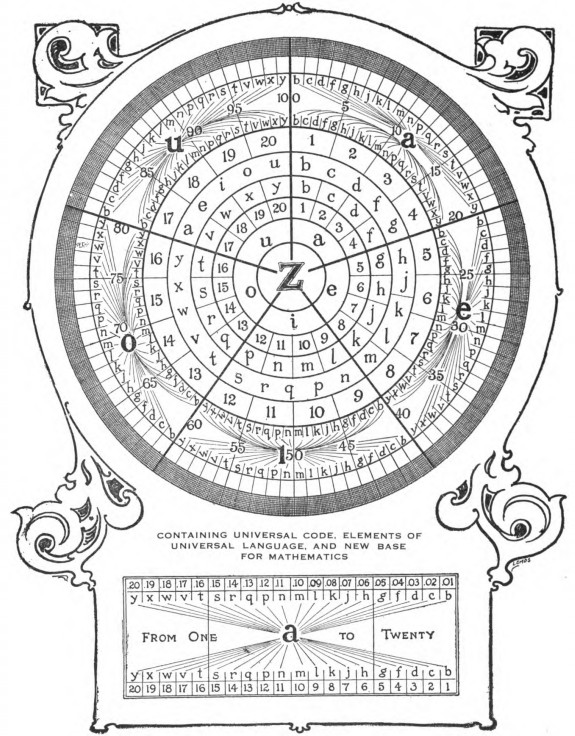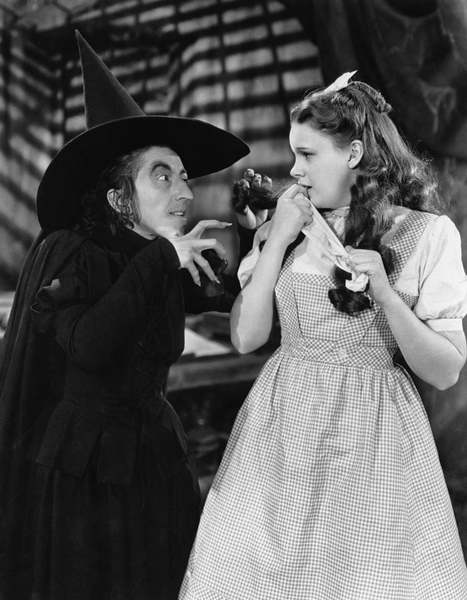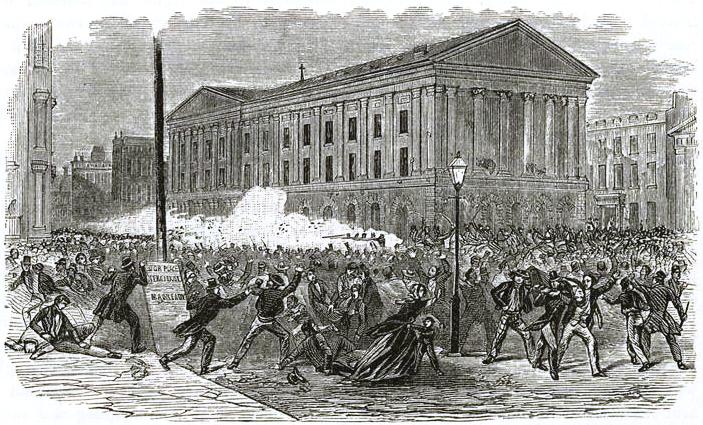What’s remarkable about this set of words?
BIOLOGY DEATHLY SLOSHED BASTARD SELVAGE FISSILE DALLIES FLAVORS
What’s remarkable about this set of words?
BIOLOGY DEATHLY SLOSHED BASTARD SELVAGE FISSILE DALLIES FLAVORS
In April 1909, Carl Jung asked Sigmund Freud his opinion on precognition and parapsychology. As Freud was dismissing them, Jung felt “a curious sensation”:
It was as if my diaphragm was made of iron and was becoming red-hot — a glowing vault. And at that moment there was such a loud report in the bookcase, which stood right next to us, that we both started up in alarm, fearing the thing was going to topple over us. I said to Freud: ‘There, that is an example of a so-called catalytic exteriorisation phenomenon.’
‘Oh come,’ he exclaimed. ‘That is sheer bosh.’
‘It is not,’ I replied. ‘You are mistaken, Herr Professor. And to prove my point I now predict that in a moment there will be another loud report!’ Sure enough, no sooner had I said the words than the same detonation went off in the bookcase.
“To this day I do no know what gave me this certainty,” Jung said later. “But I knew beyond all doubt that the report would come again. Freud only stared aghast at me. I do not know what was in his mind, or what his look meant. In any case, this incident aroused his mistrust of me, and I had the feeling that I had done something against him. I never afterwards discussed the incident with him.”
Freud was not impressed. In a letter to Jung he wrote, “At first I was inclined to ascribe some meaning to it if the noise we heard so frequently when you were here were never again heard after your departure. But since then it has happened over and over again, yet never in connection with my thoughts and never when I was considering you or your special problem.”
A fuller account is here. It’s not clear that they ever discovered the source of the sound, but note that Freud’s letter was written in the same month as the experience, where Jung’s recollection was made in an interview half a century later — when (perhaps among other things) he had misremembered the location of the bookshelf.

I just bumbled into this: In 1978 Isaac Asimov judged a limerick contest run by Mohegan Community College in Norwich, Conn. He chose this as the best of 12,000 entries:
The bustard’s an exquisite fowl,
With minimal reason to growl:
He escapes what would be
Illegitimacy
By grace of a fortunate vowel.
It was written by retired Yale official George D. Vaill. Asimov said, “The idea is very clever and made me laugh, and the one-word fourth line is delightful.”

With The Scientific Dial Primer (1912), Andrew Hallner aimed to make a universal phrasebook for all mankind. The dial contains five rings, and code words can be constructed by working from the center outward. For example, the first ring contains 5 vowels and the second 20 consonants; these can be combined to create 100 two-letter words that are used to represent the numbers 1-100 (ti, for example, means 56). Adding the third ring yields 2,525 one-syllable three-letter words, which are given specific meanings (jad refers to a butcher knife, dag to cement in sacks). With some refinements, the system can encode a message as specific as this:
We shall discard all Sunday newspapers, for these are the chief sinners and temptors, being themselves Sabbath-breakers, and maintain but one or two dailies. But these you need not look at, for I will read to you such articles and extracts as relate to Congress and general intelligence, profitable and elevating to know about.
This assertion would be represented everywhere by the same code, qema; speakers of different languages would only need local phrasebooks that explain this meaning to each in his own tongue.
“By writing or pointing to the Scientific Dial Code-Word, therefore, you can communicate intelligently with any nationality on our globe,” Hallner wrote. “You can travel in or through any country, find the way, buy tickets, give orders in hotels and restaurants, attend to toilet, address the barber, arrange your baths, and do anything and everything necessary in travel; and in ordering goods, in exchanging money, and in carrying on general business transactions. And all this knowledge may be acquired in a week! For to acquire and make use of this knowledge is only to understand the Scientific Dial and the principles involved.”
In “Freaks of the Telegraph,” an 1881 article in Blackwood’s Magazine, Charles Lewes points out that in Morse code the words BAD (-… .- -..) and DEAD (-.. . .- -..) differ only by the space between the D and E in DEAD.
This could result in a sentence such as MOTHER WAS BAD BUT NOW RECOVERED being interpreted strangely as MOTHER WAS DEAD BUT NOW RECOVERED. “Of course, in this case a telegraph operator (short of believing in zombies) would likely notice something was amiss and ask for confirmation of the message — or else attempt to correct it himself,” writes N. Katherine Hayles in How We Think.
But correcting it himself could lead to further misunderstandings. Lewes gives one example: “A lady, some short time since, telegraphed, ‘Send them both thanks,’ by which she meant, ‘Thank you; send them both’ — (the ‘both’ referred to two servants). The telegram reached its destination as ‘Send them both back,’ thus making sense as the official mind would understand it, but a complete perversion of the meaning of the writer.”
In 1860 Manchester layman J. Gill wrote “a sermon in words of one syllable only”:
He who wrote the Psalm in which our text is found, had great cause to both bless and praise God; for he had been brought from a low state to be a great king in a great land; had been made wise to rule the land in the fear and truth of God; and all his foes were, at the time he wrote, at peace with him. Though he had been poor, he was now rich in this world’s goods; though his youth had been spent in the care of sheep, he now wore a crown; and though it had been his lot for a long time to hear the din of war and strife, peace now dwelt round the throne, and the land had rest.
The whole thing is here. “This Sermon … is offered to the public with the view of showing that at least big words are not necessary for the conveyance of great truths to the minds of the people,” he wrote in a preface. “[I have] an ambition to prove that, in the advocacy of religious truth, very plain, simple, and old-fashioned words have not yet lost their original force and significance.”
“Those who speak know nothing;
Those who know are silent.”
These words, as I am told,
Were spoken by Laozi.
If we are to believe that Laozi
Was himself one who knew,
How comes it that he wrote a book
Of five thousand words?
— Bai Juyi

Margaret Hamilton on the Wicked Witch of the West:
[There was] a feeling inside that you get. One word: skulduggery. She enjoyed every single minute of whatever she was doing, whether she was screaming or yelling about the fact that Dorothy had those slippers, or sending the monkeys after them all. And the other thing was her utter and complete frustration. She never got what she wanted. She didn’t want Dorothy and she didn’t want any of those other characters. She just wanted those slippers. And today, according to law, she probably would have had them. They were her sister’s, and she would have been in line to inherit them. But she didn’t get there fast enough.
(From Aljean Harmetz, The Making of The Wizard of Oz, 1977.)
This is unexpected — in 1999 mathematician Mike Keith programmed a computer to generate knights’ tours using Warnsdorff’s rule and then labeled the successive squares A, B, C, etc. to see whether any 8-letter words emerged. After about a million tours, he found two, UNSHAVEN and ARCHIVAL:
M T Q B W D O F E T W F G J Y H R C L O P G X C V E F Y X G T K U N S H A V E N S D U H U L I Z D K P S H Y B U D G Z K X M L S Q V G J I T M Z A R C H I V A L H E R C F I L A F C J W N I R M W D G J Y J A L Q B A D O P K B F I X E B K Z K B E P O J C N Q
After some further searching he also found PERORATE and EPIDURAL. See the link below for more results.
(Michael Keith, “Knight’s Tour Letter Squares,” Word Ways 32:3 [August 1999], 163-168.)

The second-bloodiest riot in the history of New York was touched off by a dispute between two Shakespearean actors. Their supporters started a brawl that killed as many as 30 people and changed the institution of theater in American society. In this week’s episode of the Futility Closet podcast we’ll tell the story of the Astor Place riot, “one of the strangest episodes in dramatic history.”
We’ll also fertilize a forest and puzzle over some left-handed light bulbs.